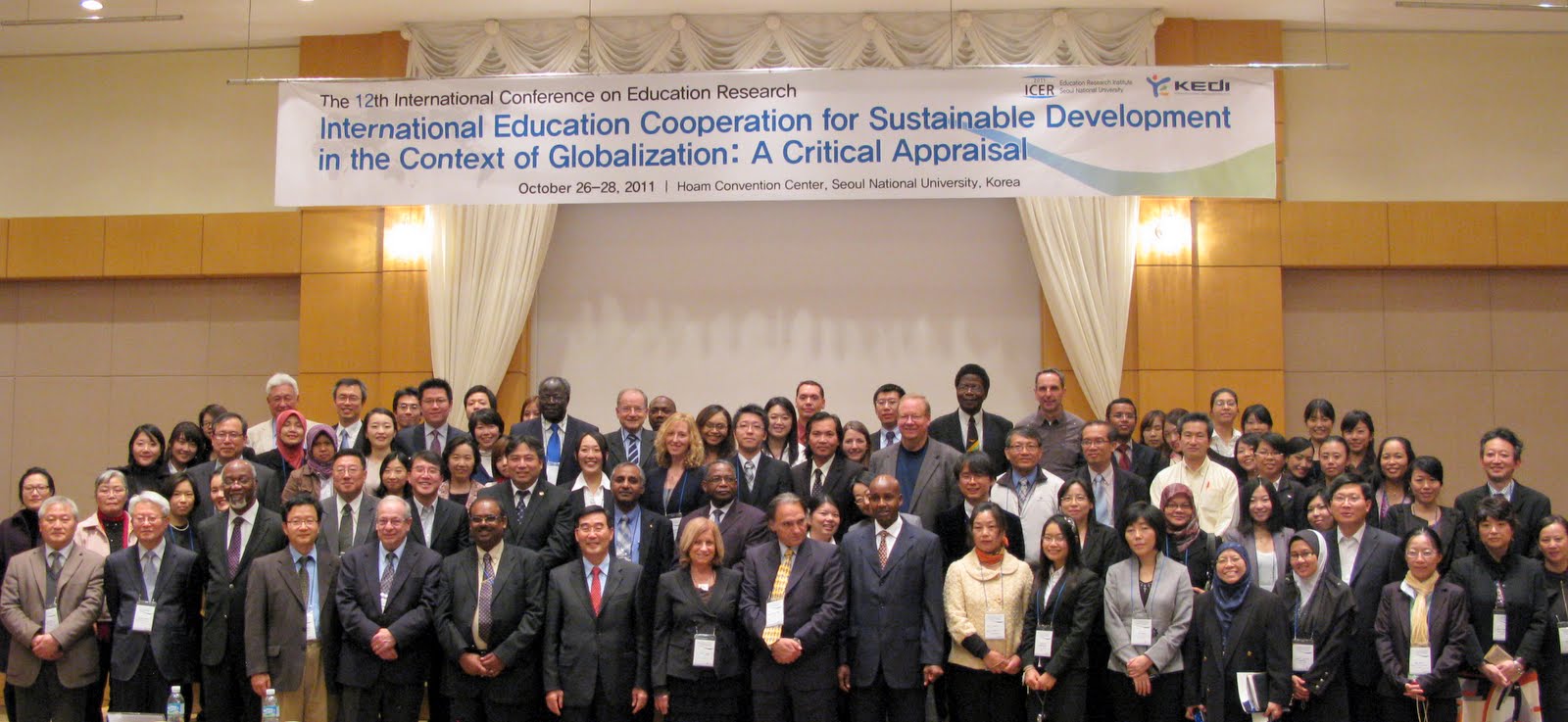JICA-RI's WDR 2012 Background Paper on Education and Gender Equality Presented at International Conference
2011.11.15
For dissemination and support of educational research worldwide, Education Research Institute at Seoul National University and Korean Educational Development Institute jointly host the International Conference on Education Research (ICER), where more than 500 experts from various regions of the world gather every year. Under the theme of “International Education Cooperation for Sustainable Development in the Context of Globalization: A Critical Appraisal,” this year’s ICER focused on promoting dialogues between education research and practices on the ground in sustainable development during the three days from October 26.
JICA-RI research fellow Takako Yuki was one of the speakers and presenters who shared their insights, and discussed her paper on basic education in Yemen. This paper, titled “Promoting Gender Parity in Basic Education: Lessons from a Technical Cooperation Project in Yemen,” has been put together as a background paper for the World Bank’s World Development Report 2012: Gender Equality and Development. Coauthored by JICA’s senior advisor Keiko Mizuno and Kobe University’s Professor Keiichi Ogawa as well as former JICA-RI research assistant Mihoko Sakai, it is based on their analysis of the data collected from a JICA’s technical cooperation project in the country.
In the presentation, Yuki introduced JICA’s project implemented at about five dozens of pilot schools in the province of Taiz from 2005 to 2008. JICA specifically put emphasis on strengthening community-participatory management of schools so as to help deliver education to marginalized children and to improve its quality in a traditional society. Yuki’s team examined data collected at three different times, in the first and last year of the project respectively, and two years after the project was completed. The analysis showed that the strong efforts to empower girls in education proved to be effective in reducing a gender gap fast, yet the level of its sustainability varied, depending on diverse factors such as school leaders’ views over gender parity and community participation. Additionally, Yuki shared the episode of providing the findings to the local counterparts and JICA’s special advisors as a feedback to the people practicing, which led to a follow-up survey on the ground.
Among numerous comments, Mr. Bill Cataria, secretary general of Association for the Development of Education in Africa, pointed out the importance of collaborating with religious leaders in operating educational projects in Africa. JICA did gain cooperation from local religious figures in raising awareness for the above-mentioned project, and Yuki plans to include any other similar cases in West Africa in the next dissemination occasion if they exist.
Reflecting on the conference, Yuki says it was a valuable opportunity to present her findings to education researchers in Asia and Africa. She will continue to work on the research on gender parity in West Africa’s education further.


事業事前評価表(地球規模課題対応国際科学技術協力(SATREPS)).国際協力機構 地球環境部 . 防災第一チーム. 1.案件名.国 名: フィリピン共和国.

事業事前評価表(地球規模課題対応国際科学技術協力(SATREPS)).国際協力機構 地球環境部 . 防災第一チーム. 1.案件名.国 名: フィリピン共和国.

事業事前評価表(地球規模課題対応国際科学技術協力(SATREPS)).国際協力機構 地球環境部 . 防災第一チーム. 1.案件名.国 名: フィリピン共和国.

事業事前評価表(地球規模課題対応国際科学技術協力(SATREPS)).国際協力機構 地球環境部 . 防災第一チーム. 1.案件名.国 名: フィリピン共和国.

事業事前評価表(地球規模課題対応国際科学技術協力(SATREPS)).国際協力機構 地球環境部 . 防災第一チーム. 1.案件名.国 名: フィリピン共和国.
scroll